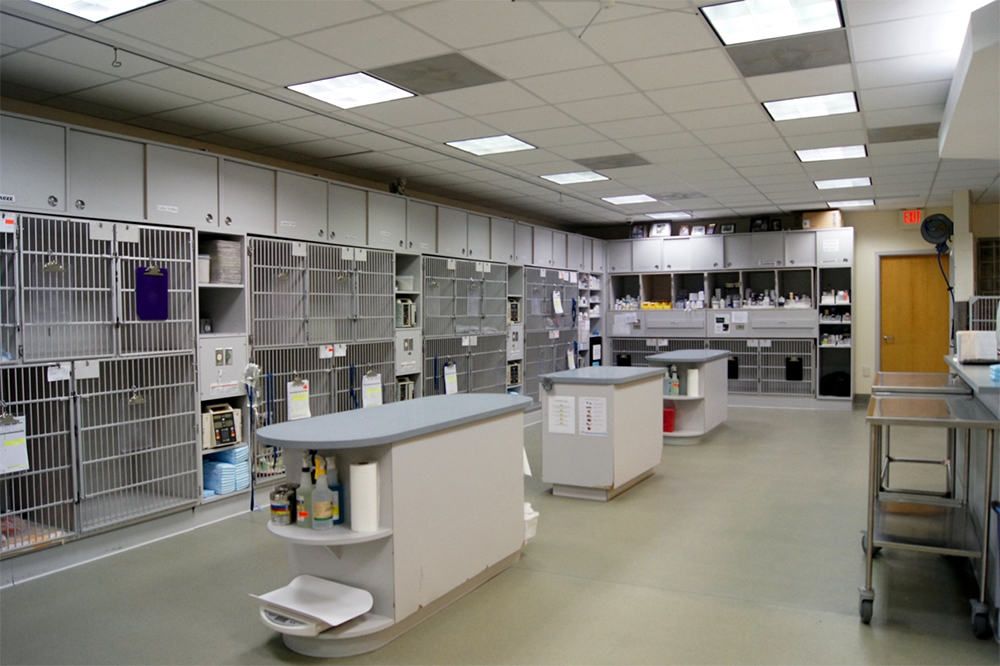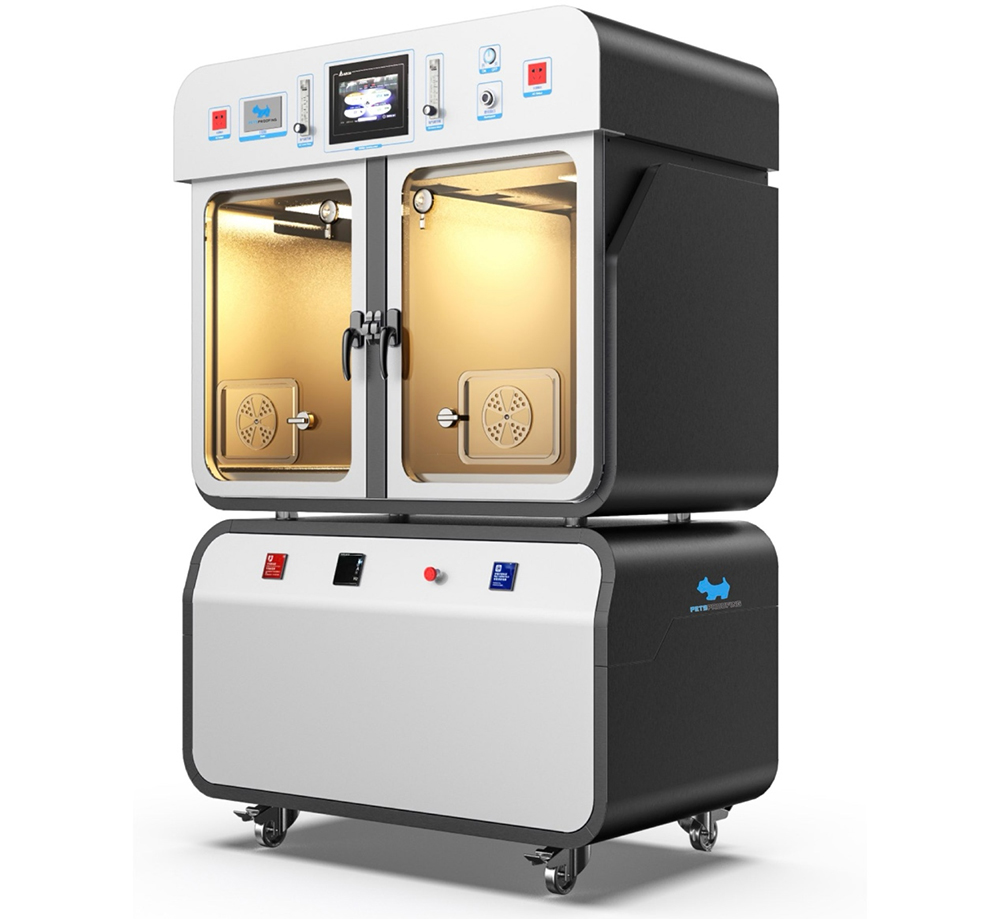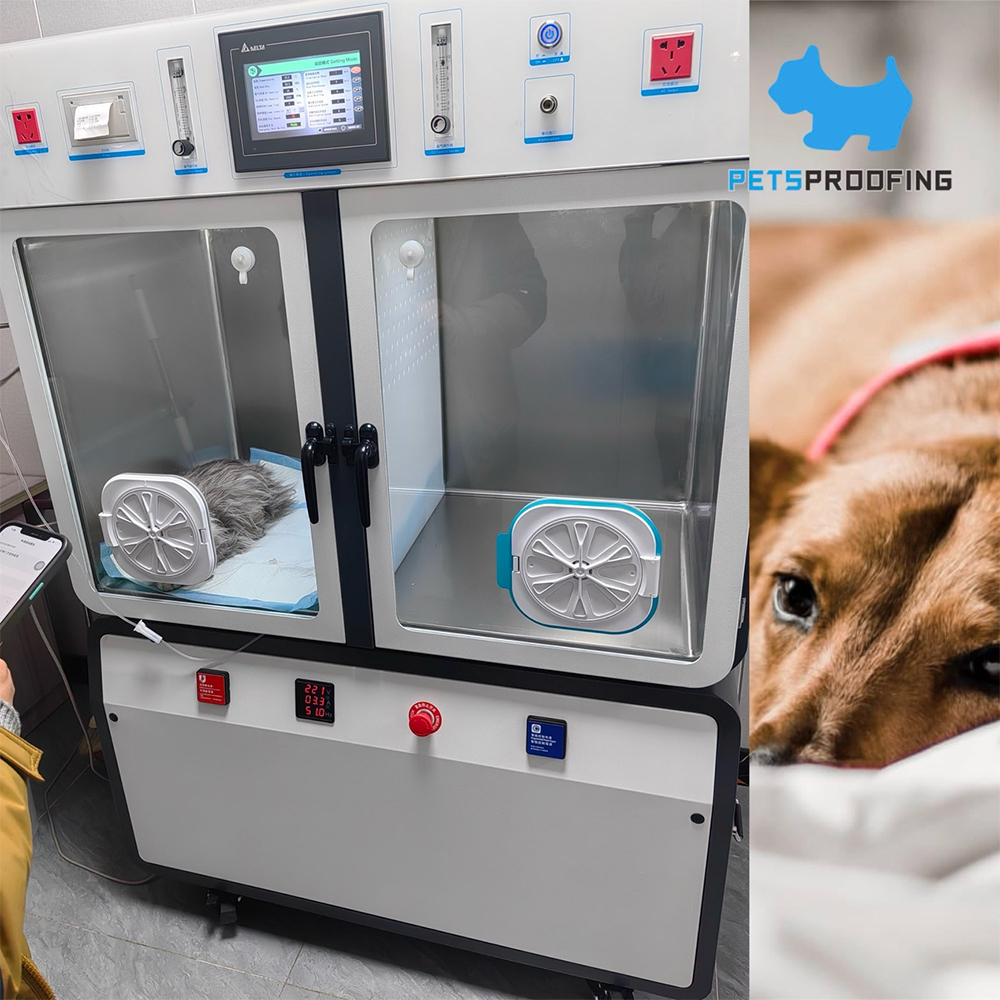Views: 0 Author: Site Editor Publish Time: 2024-01-02 Origin: Site










In the realm of veterinary medicine, Intensive Care Unit (ICU) pet cages play a pivotal role in safeguarding the health and well-being of critically ill animals. These specialized enclosures are designed to provide a controlled and monitored environment for pets requiring intensive medical attention. The importance of ICU pet cages extends beyond mere containment; they serve as a lifeline for animals facing severe health challenges.

1. Critical Monitoring:
ICU pet cages are equipped with advanced monitoring systems that allow veterinary professionals to closely observe vital signs such as heart rate, respiratory rate, and body temperature. Real-time monitoring is crucial for detecting changes in a pet's condition promptly.
2. Isolation and Infection Control:
Critically ill pets are often susceptible to infections, and isolation is key to preventing the spread of contagious diseases. ICU pet cages provide a secure barrier, reducing the risk of cross-contamination and safeguarding the health of other animals in the veterinary facility.
3. Temperature Control:
Maintaining an optimal temperature is essential for the recovery of critically ill pets. ICU cages are designed with climate control features, ensuring that the environment remains conducive to the pet's healing process. This is especially vital for animals with compromised immune systems.
4. Ventilation and Oxygen Support:
Pets in critical condition may require additional oxygen support. ICU pet cages are equipped with ventilation systems and the capability to administer oxygen, ensuring that pets receive the respiratory assistance they need for optimal recovery.
5. Post-Surgery Care:
After surgical procedures, pets often need a calm and controlled environment to recover. ICU pet cages provide a secure space where post-operative care can be administered, minimizing stress on the recovering animal and facilitating a smoother healing process.
6. Specialized Medical Equipment Integration:
ICU pet cages are designed to accommodate various medical equipment such as intravenous (IV) lines, catheters, and monitoring devices. This integration ensures that the pet receives continuous medical care without unnecessary disturbance or stress.
7. Stress Reduction:
Critically ill pets are already under significant stress. ICU pet cages are designed to minimize external stimuli and provide a quiet, secure space where pets can rest and recover. Stress reduction is vital for the overall well-being of the animal and contributes to a faster recovery.
8. Veterinarian Accessibility:
The design of ICU pet cages allows veterinarians and veterinary staff easy access to the pet for examinations, treatments, and adjustments to medical interventions. This accessibility is crucial for delivering timely and effective care.
9. Tailored Care for Different Species:
ICU pet cages are available in various sizes and configurations to cater to the needs of different species. Whether it's a small mammal, bird, or larger pet, these cages can be tailored to accommodate the specific requirements of the patient.
10. Recovery and Rehabilitation:
ICU pet cages often serve as a transitional space for pets moving from critical care to recovery and rehabilitation. This gradual progression allows for continued monitoring and adjustment of medical interventions as the pet regains strength.

In conclusion, ICU pet cages are indispensable tools in the realm of veterinary medicine. Their importance lies in providing a controlled, monitored, and supportive environment for pets facing critical health challenges. Whether it's post-surgery care, infection control, or continuous monitoring, these specialized cages contribute significantly to the well-being and recovery of animals in critical conditions. Veterinary professionals rely on the advanced features of ICU pet cages to deliver precise and compassionate care, making them an integral component of modern veterinary facilities.